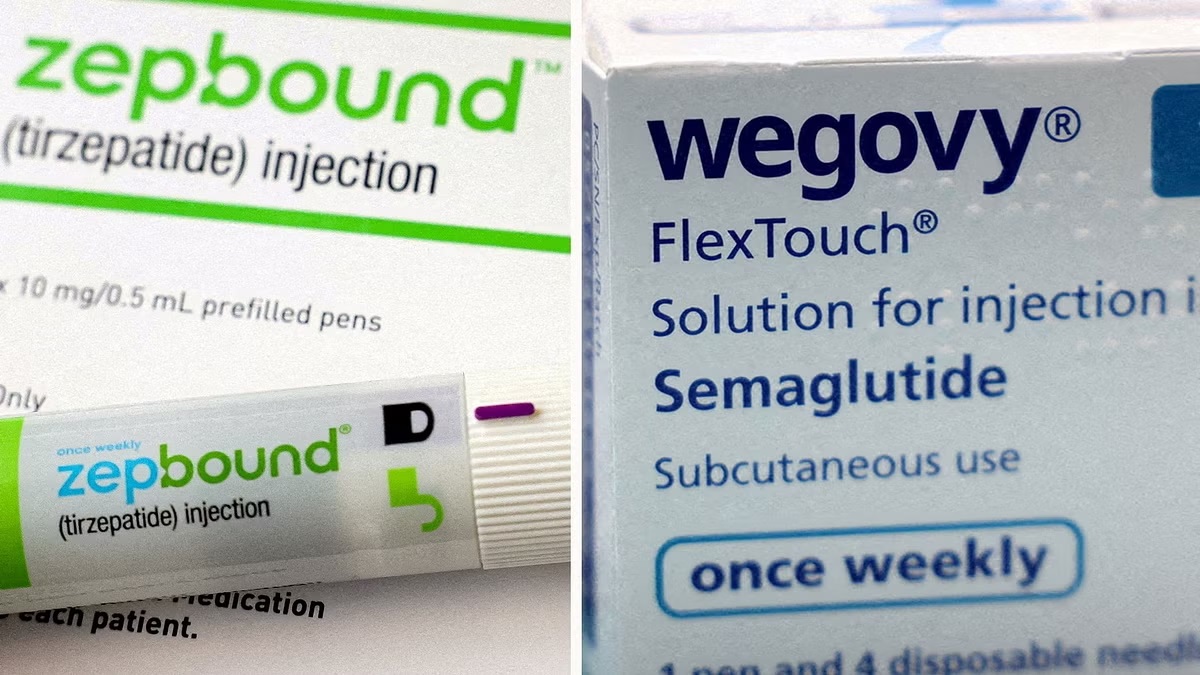- Courses
- GS Full Course 1 Year
- GS Full Course 2 Year
- GS Full Course 3 Year
- GS Full Course Till Selection
- Answer Alpha: Mains 2025 Mentorship
- MEP (Mains Enrichment Programme) Data, Facts
- Essay Target – 150+ Marks
- Online Program
- GS Recorded Course
- Polity
- Geography
- Economy
- Ancient, Medieval and Art & Culture AMAC
- Modern India, Post Independence & World History
- Environment
- Governance
- Science & Technology
- International Relations and Internal Security
- Disaster Management
- Ethics
- NCERT Current Affairs
- Indian Society and Social Issue
- NCERT- Science and Technology
- NCERT - Geography
- NCERT - Ancient History
- NCERT- World History
- NCERT Modern History
- CSAT
- 5 LAYERED ARJUNA Mentorship
- Public Administration Optional
- ABOUT US
- OUR TOPPERS
- TEST SERIES
- FREE STUDY MATERIAL
- VIDEOS
- CONTACT US
WHO Scientists Endorse Weight Loss Drugs: What Does It Mean for Obesity Treatment?
WHO Scientists Endorse Weight Loss Drugs: What Does It Mean for Obesity Treatment?
21-12-2024

- For the first time, scientists at the World Health Organization (WHO) have officially supported a new class of weight loss drugs known as GLP-1 receptor agonists in December 2024.
- These drugs pretend to be a natural hormone in the body that helps control appetite and blood sugar levels.
- The WHO scientists acknowledge that while existing efforts to promote healthy eating and exercise are important, they have not been successful in curbing the global obesity crisis.
- The new GLP-1 receptor agonists, which include drugs like semaglutide and tirzepatide, have the potential to transform how we treat obesity.
What is Obesity
|
Why Is This Significant?
- This is important because it comes at a time when patents for popular GLP-1 drugs like semaglutide are soon going to expire.
- This is a key moment, as generic versions of these drugs will be available in countries like India and Brazil.
- Generics are copies of the original drug that are often cheaper.
- Manufacturers in India are already working on creating generic versions of the drug, and bioequivalence trials are being done to make sure these generics are safe and effective.
- The timing is critical because obesity rates have been rising sharply worldwide. According to the WHO:
- In 2022, 1 in 8 people globally were obese, including 890 million adults and 160 million adolescents.
- In India, 44 million women and 26 million men were living with obesity in 2022.
- Obesity rates have been steadily increasing since 1990, and childhood obesity has seen a huge rise too.
- The WHO also predicts that the costs of obesity-related healthcare could reach $3 trillion by 2030.
- In some countries, obesity treatment could use up to 18% of national health spending.
- Moreover, obesity is linked to a high number of deaths from non-communicable diseases (like heart disease and diabetes), with 5 million obesity-related deaths worldwide in 2019.
WHO’s New Guidelines for GLP-1 Drugs
- The WHO is currently working on guidelines for using GLP-1 receptor agonists in adults with obesity.
- These guidelines will help doctors understand when and how to use these drugs safely and effectively.
- The guidelines are expected to be released in July 2025.
Popular Weight Loss Drugs
Some of the most popular drugs in the GLP-1 class include:
- Ozempic (from Novo Nordisk), which was originally approved for type 2 diabetes but is now used off-label for weight loss.
- Wegovy (another semaglutide-based drug from Novo Nordisk) is approved for chronic weight management and was the first such treatment in a decade.
- Zepbound (from Eli Lilly) and Mounjaro (a diabetes drug also used for weight loss) have also become widely used for obesity treatment.
These drugs have become highly popular and in demand, but their availability is often limited, and some countries have faced supply shortages.
Risks and Concerns
- While these drugs can lead to significant weight loss (between 10% to 25% of body weight), there are important risks:
- Side Effects: The drugs can cause serious side effects like gastroparesis (a condition where the stomach doesn't empty properly), pancreatitis (inflammation of the pancreas), and even thyroid cancer.
- Weight Regain: If a person stops using the drug, they are likely to regain the weight they lost, which is a concern about the long-term effectiveness of these treatments.
- The drugs can be expensive, and there are worries about the rise of counterfeit products and grey markets due to high demand. However, once the patents expire, the drugs should become more affordable and more widely available.
What Does This Mean for Obesity Treatment?
- The endorsement of these drugs by the WHO is a major step forward in the fight against obesity.
- It shows that while lifestyle changes (like diet and exercise) are still important, new medications may play a crucial role in helping people manage their weight.
- However, these drugs are not a one-size-fits-all solution.
- They come with risks and should only be used under medical supervision.
- The high costs and possible side effects mean that they may not be suitable for everyone.
- But with more research and the eventual availability of generics, these medications could become a key part of obesity treatment in the future.
Conclusion
The WHO’s endorsement of GLP-1 receptor agonists marks an important shift in how the world approaches obesity. As more people globally struggle with obesity and its related health problems, these drugs may offer an effective solution. However, their use must be carefully managed, and guidelines will be essential to ensure they are used safely and appropriately. With the expiration of patents and the rise of generics, access to these drugs is expected to increase, making them more affordable for many people worldwide.
| Also Read | |
| UPSC Prelims Result | UPSC Daily Current Affairs |
| UPSC Monthly Mgazine | Previous Year Interview Questions |
| Free MCQs for UPSC Prelims | UPSC Test Series |
| ENSURE IAS NOTES | Our Booklist |




